Column | Malkeet Kaur
Published on July 20, 2020Sustainable Sentosa
Sentosa Golf Club’s iconic 5th hole on The Serapong
Last year, at the 2019 World Golf Awards, Sentosa Golf Club, home to Singapore’s iconic Serapong and New Tanjong golf courses, won the ‘World’s Best Golf Club’ accolade cementing its position as a world-class destination. Not surprisingly, the club has garnered the nomination for Best Eco-Friendly Golf Facility 2020 at the World Golf Awards.
One may wonder, how could a golf course located in a tiny Southeast Asian country, beat the fierce competition from many other famous golf courses around the world. There are several reasons Sentosa rose to the occasion, aside from being a hub for international tourism and an essential sporting facility. Sentosa Golf Club was also recognised for being the world’s leading environmentally friendly golf venue, a fact attested by the 2019 RHT RMF GAIL Sustainability Day award. The club successfully collected the Sustainability Gamechanger and Sustainability Innovator titles. And these awards are firm endorsements of the club’s sustainability strategies and its goal of becoming the world’s leading green venue.
The Sustainability Gamechanger title was given for the club’s ability to drive change in sustainable practices within their respective industry. At the same time, the Sustainability Innovator award recognised the club’s ability to be innovative to achieve positive social, environmental and economic impacts.
Indeed, in recent years, Sentosa Golf Club has upped its game on the sustainability drive with their various sustainable initiatives. Also, Sentosa’s agronomic practice has long been considered at the forefront of the golf industry. Continual efforts have been made in developing the most sustainable methodologies, and maintenance programmes demonstrated best in the reconstruction of the New Tanjong course.
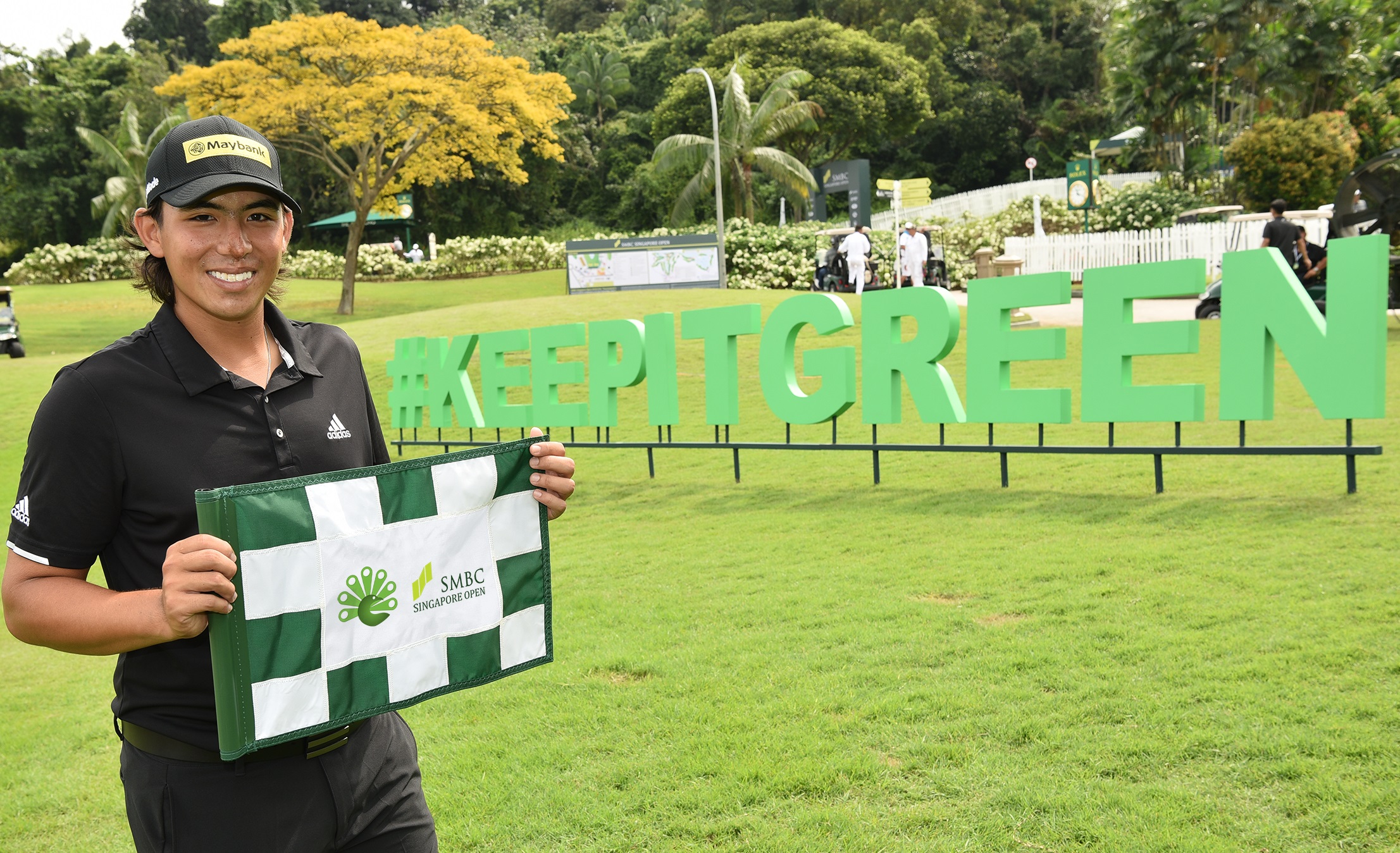
Malaysia’s Gavin Green launched Sentosa Golf Club’s #KeepItGreen Campaign at 2018 SMBC Singapore Open
The #KeepItGreen initiative that was launched during the 2018 SMBC Singapore Open has evolved into a way of life at the club intending to reduce environmental footprint, both on and off the golf course. Club operations ensure that environmental sustainability is considered into every decision taken by the club. Every aspect of the agronomy programmes and operations are continuously monitored to ensure that all work is carried out in harmony with the environment.
Sentosa Golf Club was the first golf club in Asia to introduce the usage of carbon product in its agronomy programme. It was also the first to initiate the GPS (RTK satellite navigation) spraying equipment to improve efficiency and reduce the use of chemicals to a bare minimum. Also, converting the irrigation system to a single-head control system has allowed the club to reduce its water usage by 40%.
Plastic water bottles and straws have been banned from the club, and over the two years, this initiative has helped save around 300,000 plastic water bottles and 120,000 straws. Water stations have been installed at various points around the golf course so that golfers can refill their reusable water bottle throughout their entire round.
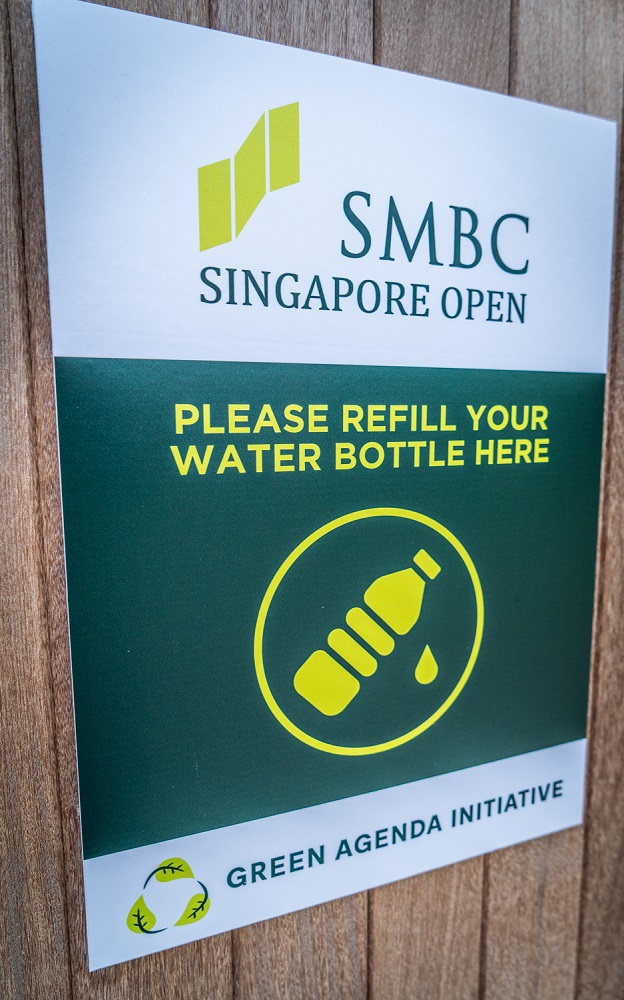
Water-saving initiatives are high on the agenda at Sentosa Golf Club and the tournament
The club is also planning to introduce waste digesters to convert food and horticulture wastes into fertilisers for both the golf courses. The innovative initiative has too caught the interest of the R&A, and they are keen to work with Sentosa on this project.
The other initiative that the club launched in 2020 is the GAME ON initiative, which is designed to be a stimulus towards tackling the global threat of climate change. Golf’s major stakeholders and the global golfing community are being encouraged to implement innovative processes that will preserve the environment, thus addressing the climate change issues.
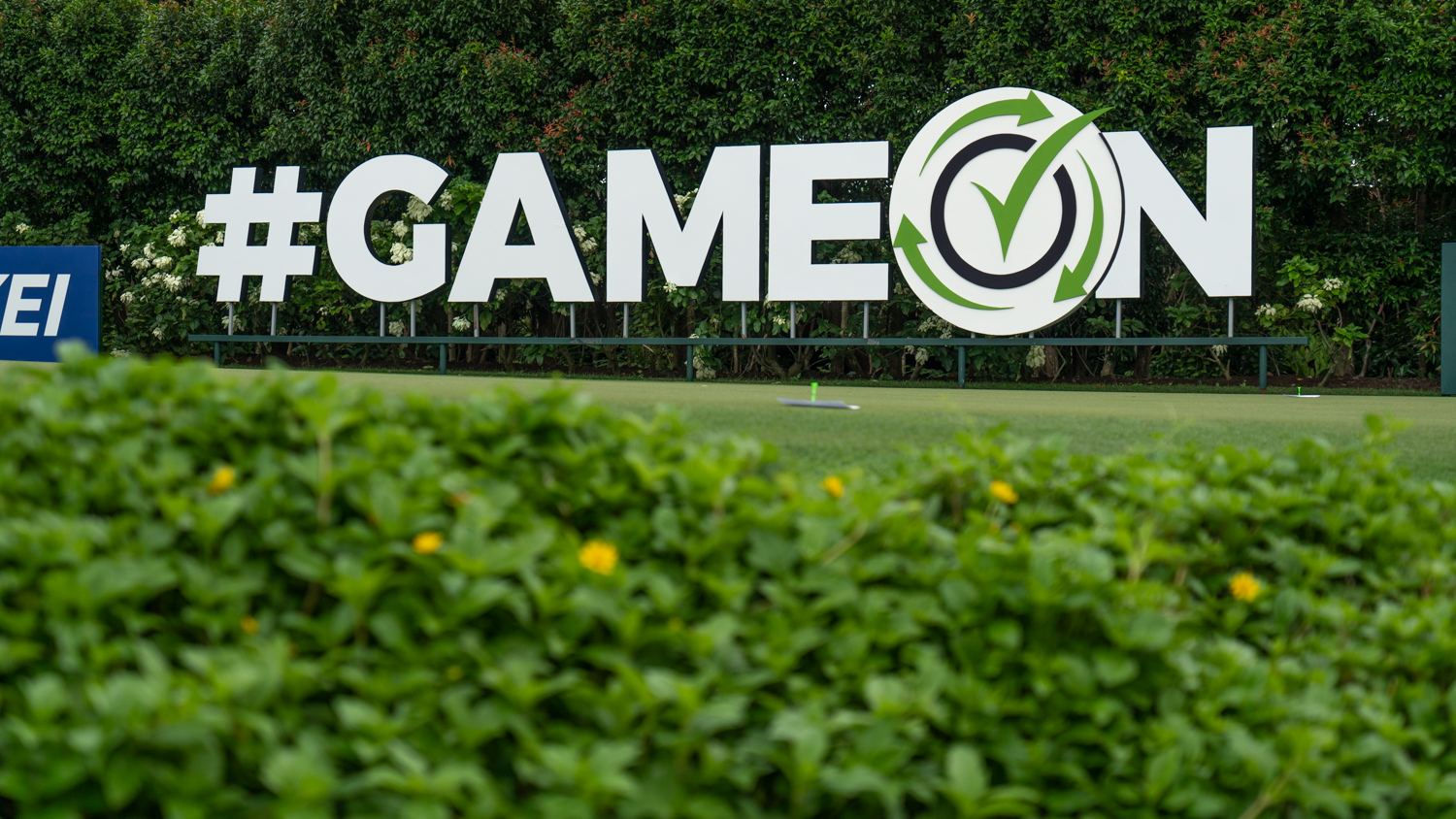
Sentosa Golf Club unveiled the GAME ON campaign at 2020 SMBC Singapore Open
With this initiative, the golf industry will place itself at the forefront of making a difference on climate change. There are over 61 million golfers and about 39,000 golf courses worldwide, and the idea is to get the industry united, more socially conscious and working towards reducing golf’s carbon footprints.
The GAME ON model was developed by the world’s leading agronomists, Andrew Johnston, General Manager and Director of Agronomy at Sentosa Golf Club. Johnston has more than 40 years of experience in golf course design, golf operations and is one of the leading figures in the golf industry, especially in sustainability. He has helped transform Sentosa Golf Club into one of the most recognisable eco-friendly golf facility in the world through the measures he has implemented.

Henrik Stenson learns more about sustainability from Sentosa Golf Club GM Andrew Johnston
The concept of GAME ON is to target the relevant issues faced by both golf and the world in its fight against climate change. The idea is to reduce carbon while addressing the dependence on unnecessary processes that are harmful to the environment.
The GAME ON model, which is set to be available as a free downloadable toolkit from the club’s website, has similarities and supports the R&A’s 2030 Golf Course Sustainability that considers the impact, both positive and negative, of a changing climate, resource constraints and regulations on the course conditions and playability.
It is imperative for clubs, owners and managers to gain an understanding of persevering the environment and Sentosa hopes to serve as an inspiration in this respect. From taking food wastage and recycling in back into the ecosystem to introducing bees into the community (another innovative initiative of the club), Sentosa Golf Club hopes to have a lasting and sustainable impact on the environment as well as the golf industry.

Sentosa Golf Club New Tanjong 18th and Clubhouse
Sentosa Golf Club lies at the heart of the Singapore golf and leisure community. Located on the famed Sentosa Island, which attracts millions of visitors each year, the club is home to the R&A’s Asia Pacific office and is the Official Headquarters of the Asian Tour.
Sentosa Golf Club Sustainability Initiatives include:
- Banned all single-use plastics from their golf courses
- Installed water stations at various points around the golf courses where members and guests can refill a single re-useable water bottle throughout their rounds.
- Over a two-year period, the initiative has helped to save around 300,000 plastic water bottles.
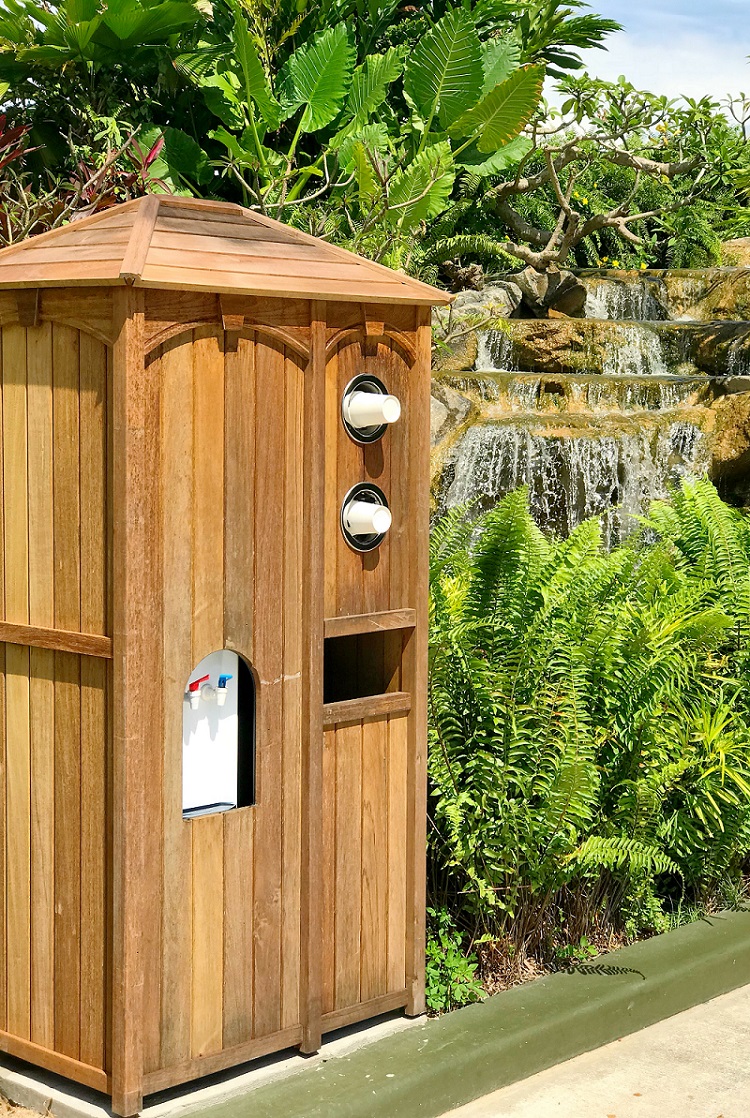
The water station on the golf course
- Installation of Reservoir Lakes
- As part of the New Tanjong’s redevelopment in 2016, the club installed six large reservoir lakes around the golf course
- The installation of the reservoir lakes has allowed the golf courses to become self-irrigating
- The club is able to collect rainwater in the reservoir lakes and recycle the water as irrigation for their golf courses
- Converted Irrigation Systems to Single-Head Control System
- Sentosa Golf Club has converted its irrigation system to a single-head control system
- This has allowed the club to reduce its water resources used by up to 40%
- Lithium-ion Batteries in Golf Carts
- Club has converted its 220 golf carts to use Lithium-ion batteries which are rechargeable and last for up to 8 years rather than having to be replaced on an annual basis like the ordinary lead-based batteries
- Created their own Sustainable Herb Garden
- Club has created their own sustainable herb garden that allows them to organically grow their own herbs and use them in their kitchen
- By growing them organically, the club does not have to rely on products that have been grown using chemicals and pesticides that are harmful to the environment or for products to be delivered that result in more greenhouse gases being produced
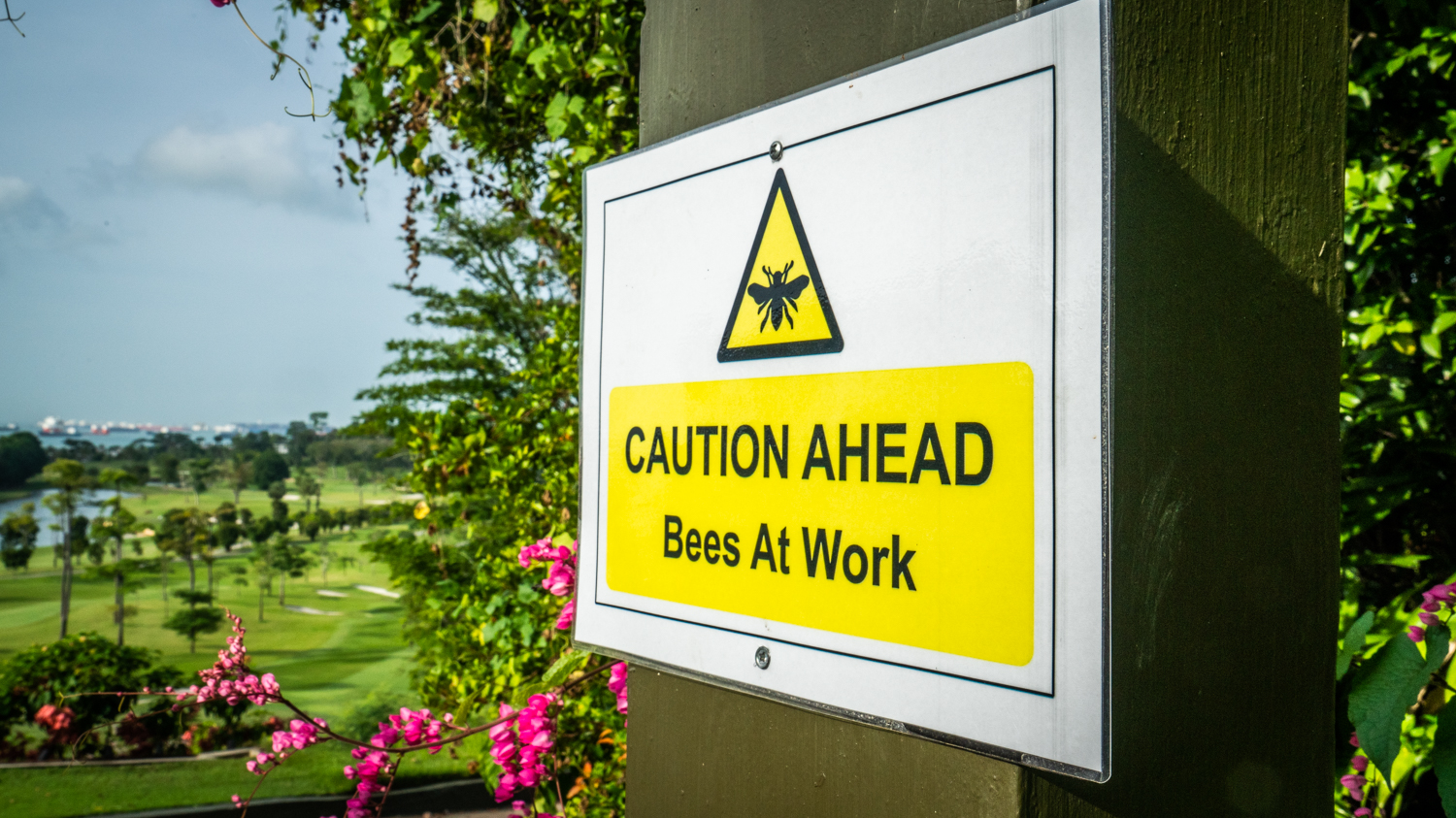
Sentosa Golf Club Bee Colonies
- Created their own Stingless Bee Colonies on-site
- Bees are one of the world’s most important species as one-third of the food we eat in the world is a result of bees
- The bee population is estimated to be down by around 75%
- End of bees could signal the ‘beginning of the end of the world.’
- Sentosa Golf Club has developed four stingless bee (Heterotrigona itama) colonies on-site behind the ‘Pyramids’ on the New Tanjong’s 4th hole
- Club wants to help play their part in maintaining the world population of bees, as well as raising awareness for the importance of bees to our society
- The colonies were created and helped set up by John Chong, Founder of BEE AMAZED, in partnership with Sentosa Golf Club
- BEE AMAZED is a visitor’s centre in Singapore that provides knowledge and information on the local bees, honey and basic beekeeping techniques
- Any golf club around the world can create their own colonies using any excess space around the club. Sentosa have many parts of the property that can’t be used for golf that’s perfect for colonising bees…”
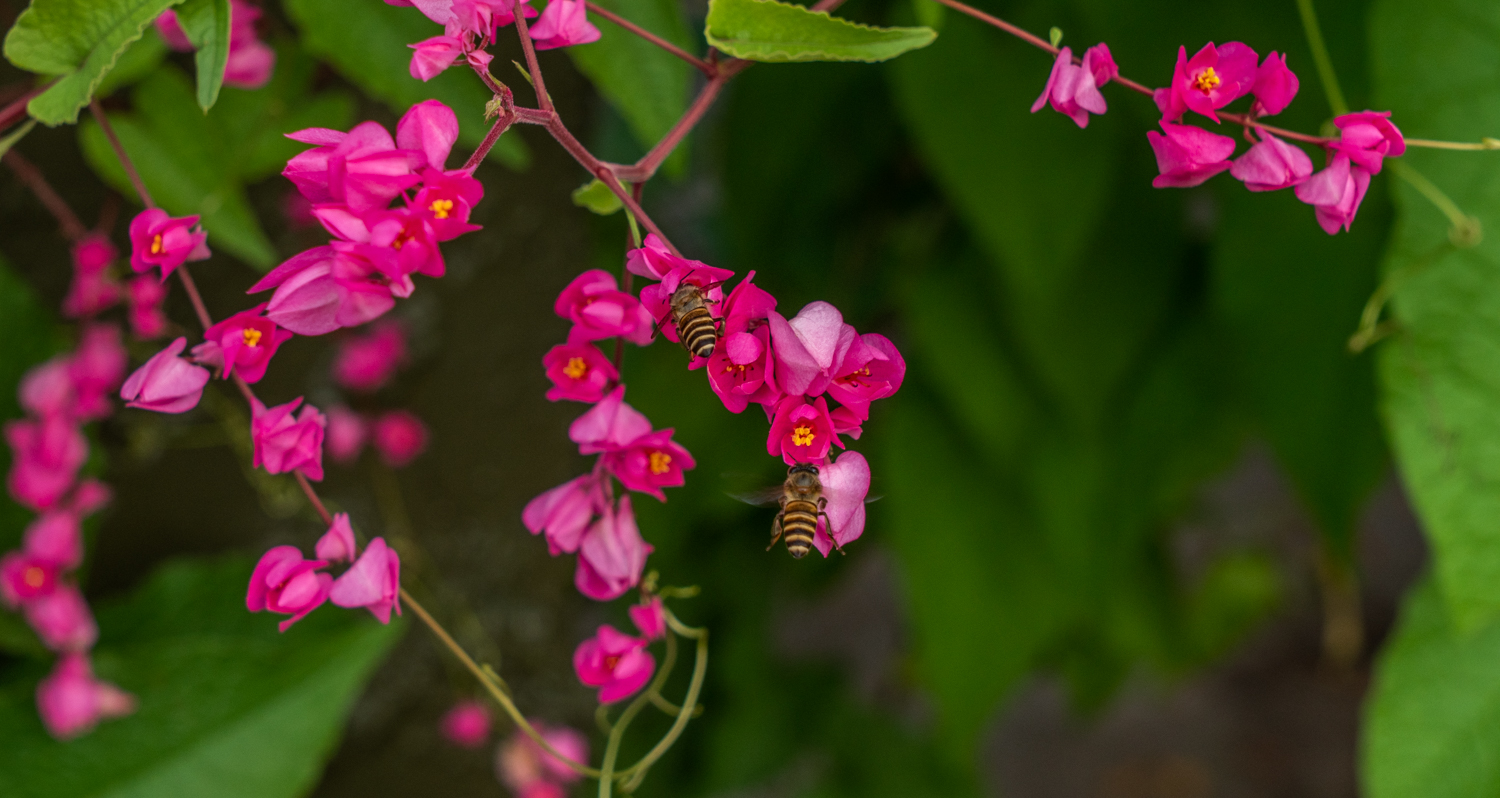
- Became First Club in Asia to Introduce Carbon Products into Agronomy Programme
- The first club in Asia to introduce carbon products in the form of Biochar into their agronomy programme
- Biochar helps to remove more carbon from the atmosphere as it helps to develop the soil and enhance its foundations giving it a healthier soil profile
- It is estimated that the use of biochar in soils could help increase the uptake of carbon from the atmosphere by up to 10% more than normal
- Use of Biochar has allowed Sentosa to reduce the fertility applications used by up to 50% annually, as well as reducing pesticide applications used by up to 95%
- Purchased GPS Spraying Equipment to Improve Efficiency
- The club purchased GPS spraying equipment to increase efficiency and reduce the amount of product applications used by targeting specific areas of the golf courses at one time
- The GPS spraying equipment has helped the Sentosa agronomy team to reduce its product application used by up to 30%
- Club Culture
- As part of the club’s culture and ethos, they challenge their staff to pick 15 weeds per day to help sustain the environment in and around the club and golf courses
- This is an efficient way to help sustain the environment as it requires no machinery to be used in the process, therefore limiting the use of greenhouse gases given off
Search
Other Course Highlights
- New state-of-the-art accommodation to improve overall experience for golfers at PGA NovaWorld Phan Thiet
- New Integrated Software installed at the PGA NovaWorld Phan Thiet in Vietnam
- Vietnam’s newest premier golf destination joins Asian Golf Industry Federation and International Association of Golf Tour Operators
- Sentosa’s Serapong Reaches New Heights in Golf Digest World’s 100 Greatest Golf Courses
- Greg Norman-Designed PGA NovaWorld Phan Thiet is Nominated for World’s Best New Golf Course’ at World Golf Awards
- PGA NovaWorld Phan Thiet Welcomes International Visitors as Vietnam Reopens Border
- KLGCC’s Sustainability Efforts Achieve International Recognition at Energy Management Leadership Awards 2021
- Troon Golf and Emaar Hospitality Group Mark 20TH Anniversary of Partnership with Celebratory Event
- KGA Welcomes New Golf Course Superintendent
- Yas Links Abu Dhabi Partners with Marriott Business Council to Raise Funds for Operation Smile UAE
- More news...